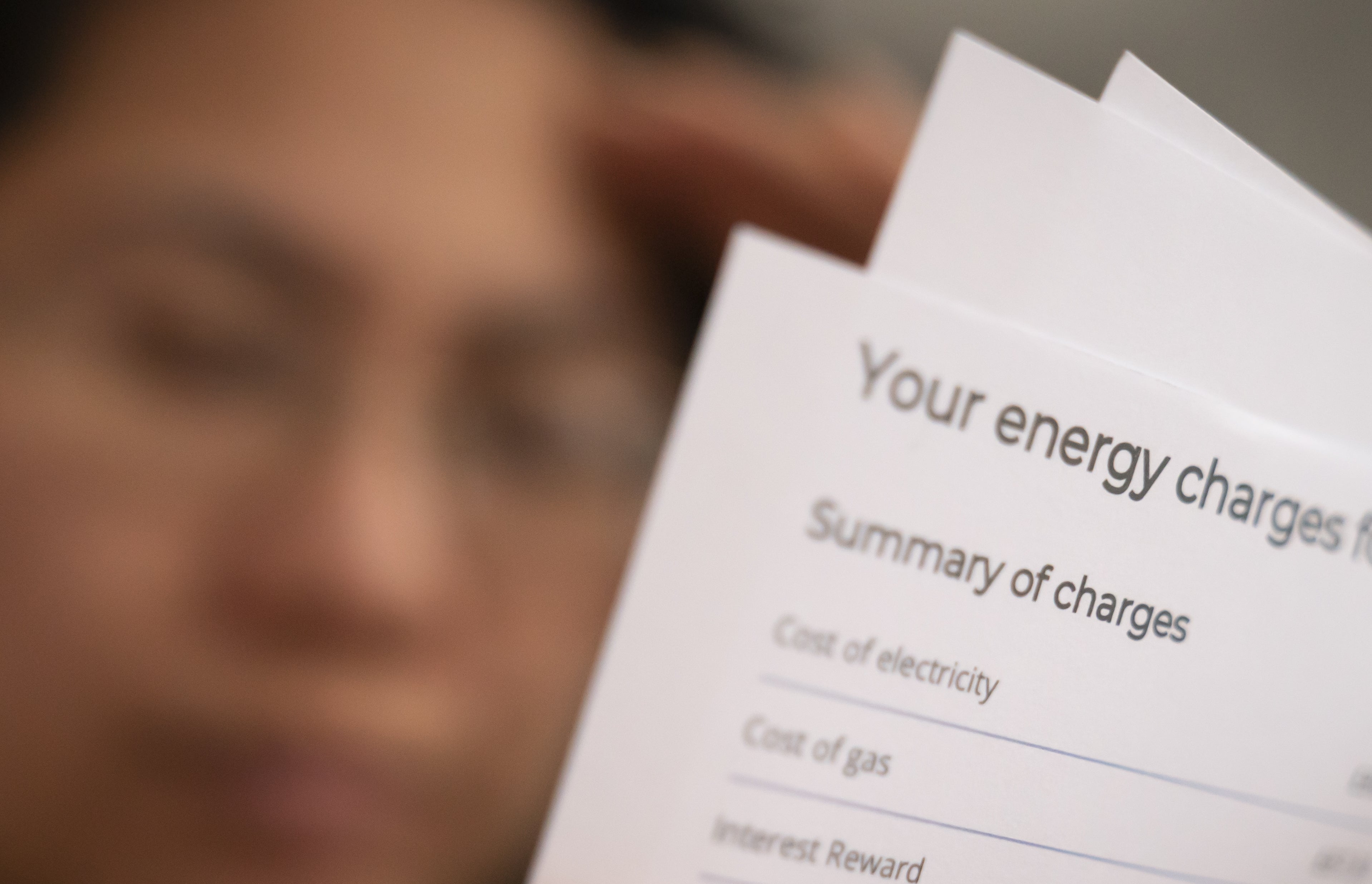Ofgem is doing more to protect energy firms than consumers
Britons could now face with huge prices rises in the middle of winter, says James Moore

”Ofgem backs consumers with price cap update,” said the announcement. A bold claim.
It implies we will at last see some action to mitigate against the impact of soaring energy bills ahead of a potentially horrible winter in which “heat or eat” doesn’t quite describe the severity of what is being faced. It could come down to “freeze or starve”.
Energy bills have already shot up to an average of £2,000 a year. Some forecasts suggest that another £600 hit is on the way. The consequences could be horrific.
So what can we expect? Ofgem as caped crusader, unveiling a windfall tax to be used to defray these appalling costs? A Captain America style shield held up by the watchdog to protect the most vulnerable consumers?
Um, no.
Those things aren’t in the energy regulator’s gift. They can only emerge from within the halls of a currently sleeping Treasury, where Chancellor Rishi Sunak seems set upon leaving hard-up Britons to swing while promoting measures measures designed to shore up Tory support closer to the next election.
What Ofgem is actually proposing is to update its price cap every three months rather than every six. As a measure to help consumers, it’s akin to giving a starving man a Peloton.
Chief executive Jonathan Brearley says the “top priority” of Ofgem is to “protect consumers” and that this change will in fact mean that “any price falls would be delivered more quickly.”
The problem is that will also mean any futher price rises would similarly be delivered at speed. Energy prices are currently going in only one direction, and it isn’t down.
You could make a case that a three-monthly review would “smooth” the ups and downs of a choppy energy market, making budgeting easier. It is the sort of argument that might make sense to a Treasury or Ofgem economist on a decent salary and for whom fuel poverty is an abstract concept.
National Energy Action, a fuel poverty charity, highlights the problem for those in less fortunate circumstances: three-monthly updates to the price cap open the door to thumping price rises bang in the middle of winter, as opposed to the current autumn and spring updates.
There is also a proposed mechanism – which Ofgem says it is “minded” to press ahead with – designed to protect energy suppliers from a repeat of the current situation in which the price cap is set lower than the level at which they’ve been buying energy. It makes it easier for them to recover any losses. This, we are told, is good for the consumer because it means energy suppliers are less likely to go pop.
It is true that instability caused by the sort of mass collapse we’ve recently witnessed doesn’t help anyone.
But the regulator’s proposed mechanism works pretty damn well for the big six energy companies who’ve been reporting healthy profits, and stand to benefit greatly from a hollowed-out market in which competitive pressures have all but vanished.
If this is at all good for the consumer, it is certainly much better for the industry.
The hard fact is that the energy market is broken and badly failing consumers, particularly those least able to cope with the sudden price spike that has led to the cap heading off into the upper atmosphere with a moonshot very much on the agenda.
Other European countries have taken real action that will protect consumers. Mika Minio-Paluello of the TUC cites Greece’s energy windfall tax as an example. It is being used to cushion the blow of higher bills there, where winters can get quite cold and air conditioning is heavily relied upon at this time of year.
If Greece can do it, with a fraction of Britain’s resources and clout with energy companies, the question has to be asked why ministers can’t do the same in Britain.
We currently have the appalling situation in which BP, Shell and other big guns are making vast profits. Fuel-poor households in Britain’s forgotten towns are contributing to those profits, which are being spent on share buybacks to boost the pensions of the wealthy. Meanwhile, the energy regulator appears to think that making life more comfortable for those companies can actually be classed as backing consumers.
In reality, Ofgem’s plan runs the risk of making a bad situation worse. And some consumers are in a very bad situation.






Join our commenting forum
Join thought-provoking conversations, follow other Independent readers and see their replies
Comments